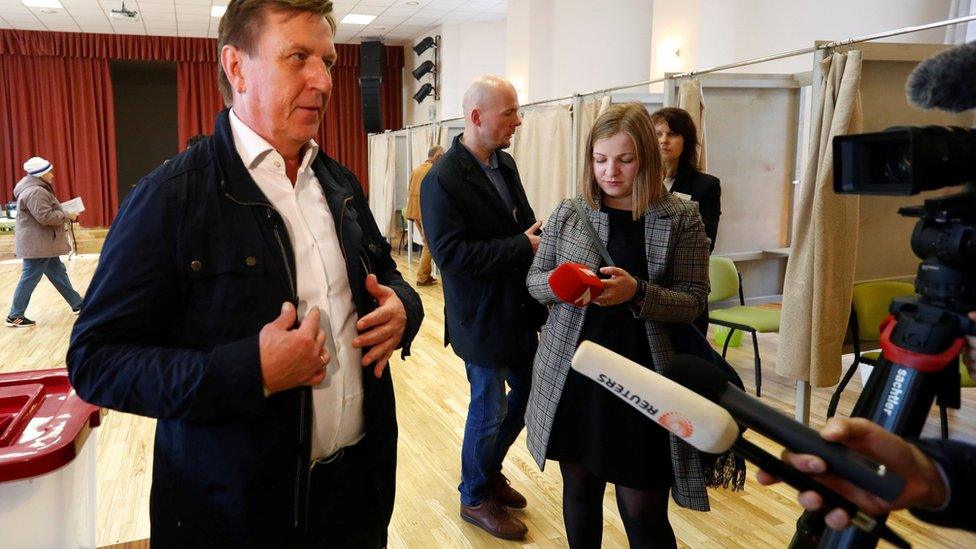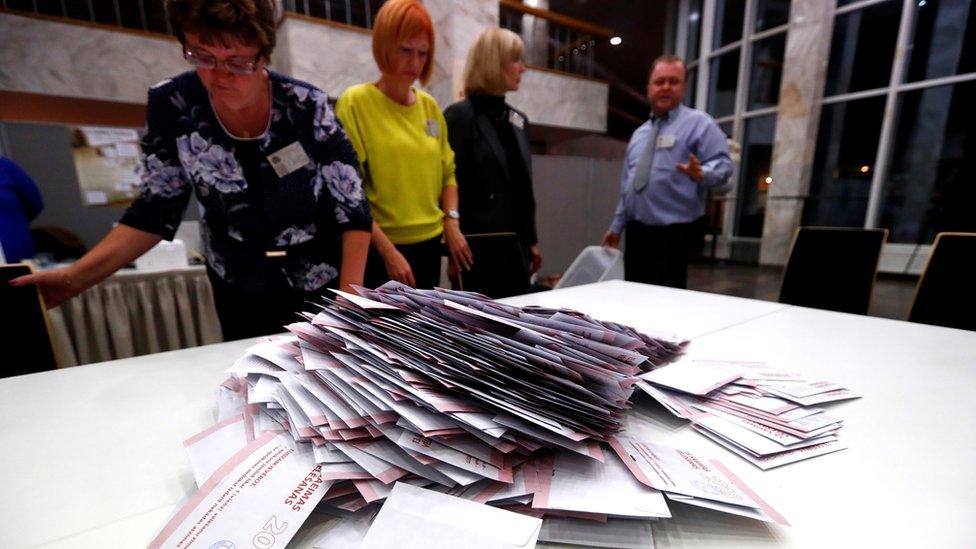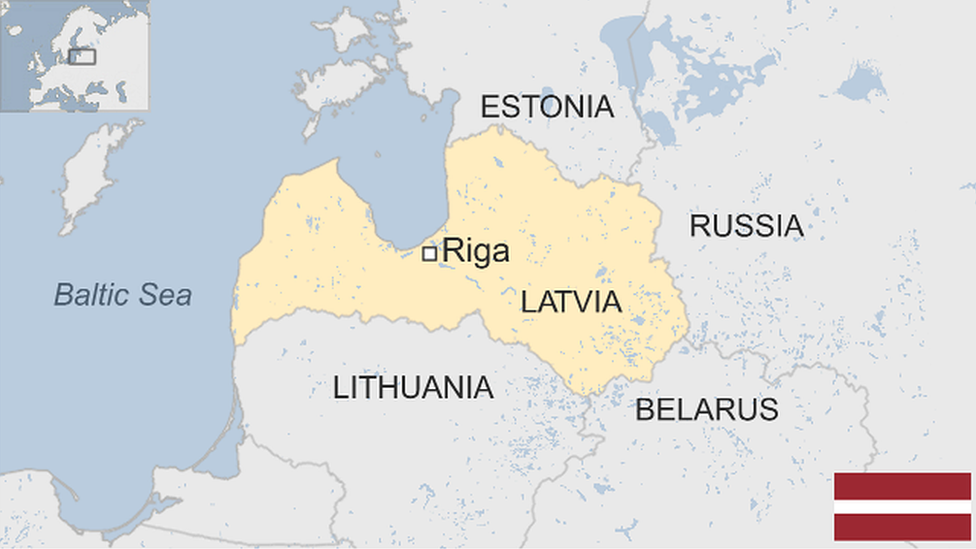Pro-Russia party wins Latvia election but tough talks loom
- Published

The governing coalition of Prime Minister Maris Kucinskis did poorly in the election
A pro-Russia party won the most votes in Latvia's general election on Saturday, but it could still be kept out of a new coalition government.
The Harmony party polled 19.8%, ahead of the populist KPV LV (14%) and New Conservatives (13.6%). Harmony will have 23 seats out of a total of 100.
In the past, parties have formed pacts to keep Harmony out of government.
Commentators say Harmony might form part of the next government, but tough coalition talks lie ahead.
The New Conservatives and KPV LV will have 16 seats each. But New Conservatives leader Janis Bordans ruled out any co-operation with Harmony, calling that "a red line".
Harmony chairman Nils Ushakovs argued that "no coalition combination is possible, without Harmony, that would appear able and stable". He is also mayor of the capital Riga.
Ethnic Russians form about a quarter of Latvia's 1.9-million population. The Baltic state - in both the EU and Nato - also has a border with Russia.

Final results showed a very fragmented political scene in Latvia
Prime Minister Maris Kucinskis's governing coalition, comprising the Union of Greens and Farmers, the National Alliance and the Unity party, only won about 27%.
Their support was hit by public dissatisfaction over the fight against corruption and money-laundering - both key campaign issues.
Latvia - part of the Soviet Union during the Cold War - is now on the front line of the increasingly tense relationship between the West and Moscow. Nato has more than 1,000 troops in the country.
Harmony has said it wants Latvia to stay in the EU and Nato but to have closer economic ties with Russia.
Coalition talks could now last for several weeks.
- Published22 August 2023
